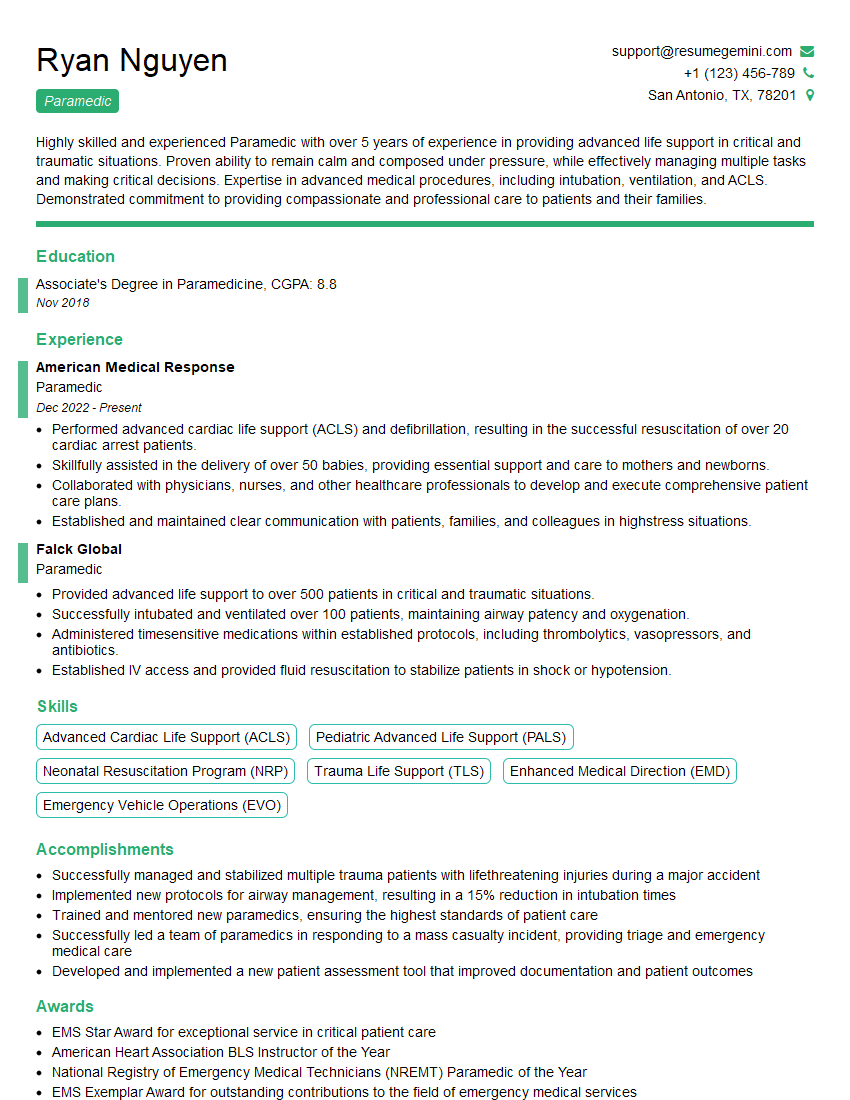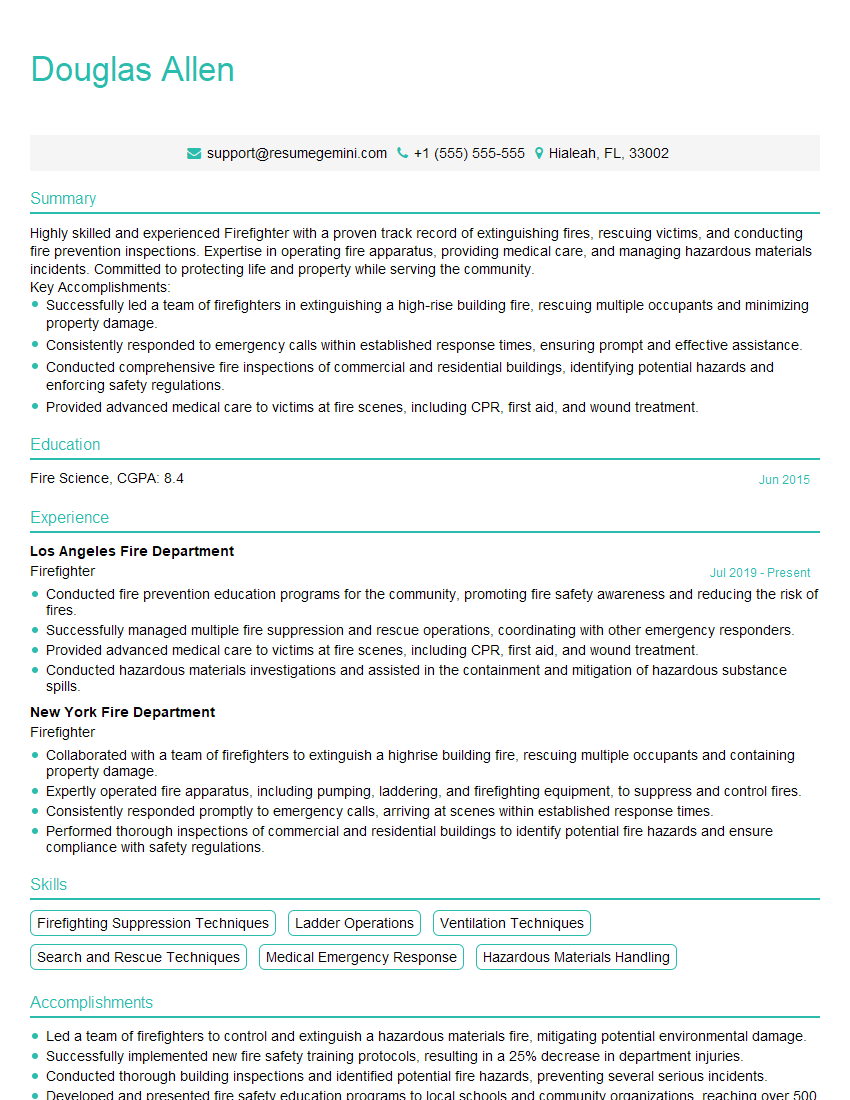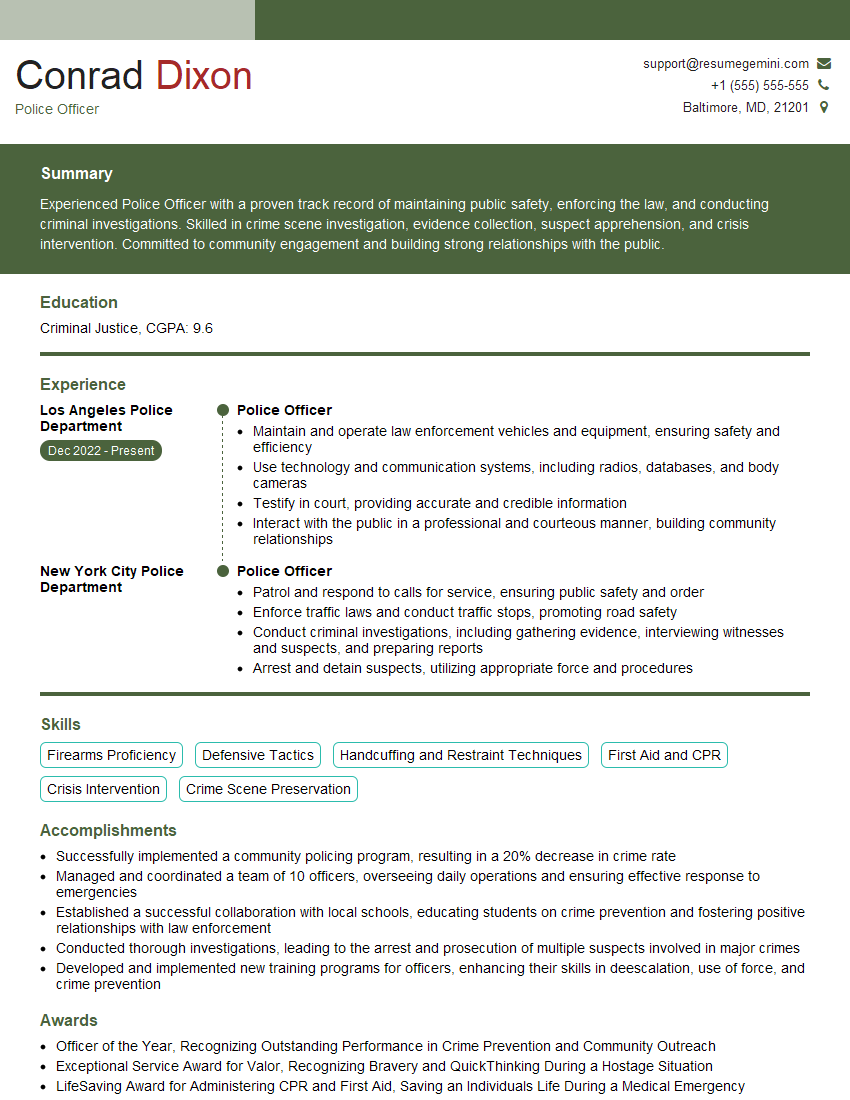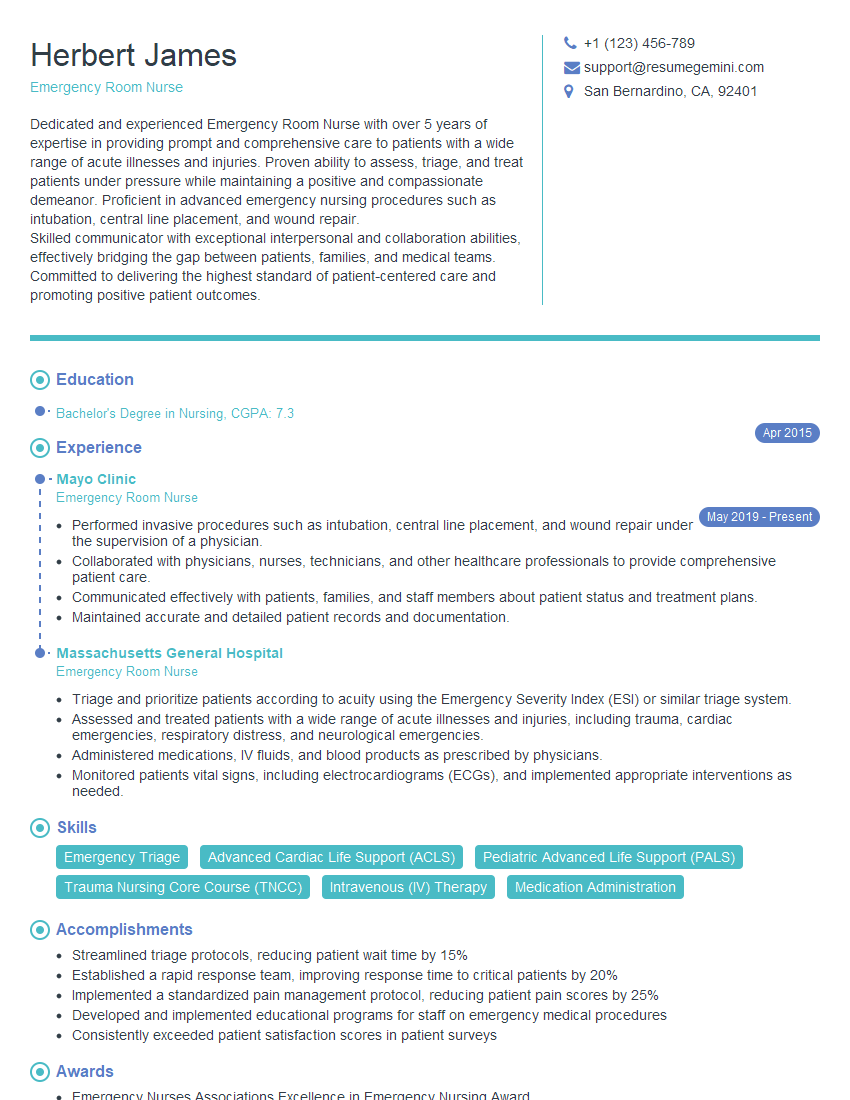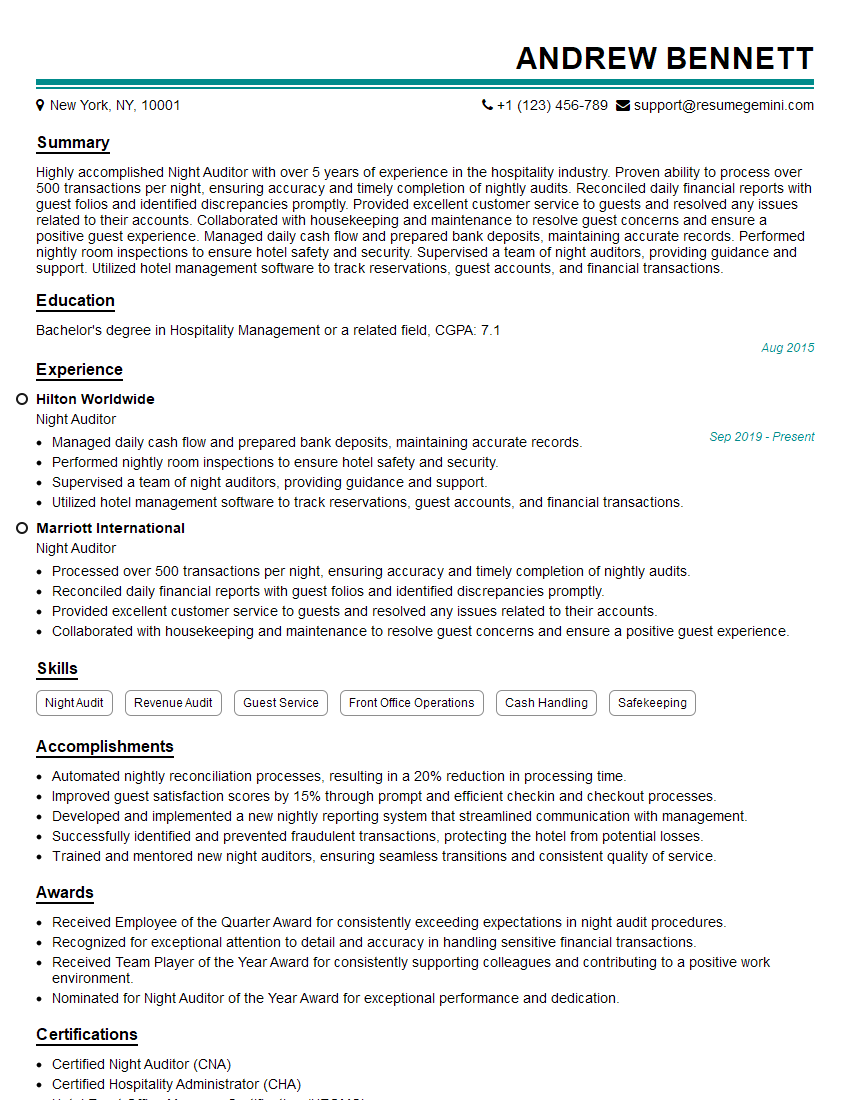Feeling uncertain about what to expect in your upcoming interview? We’ve got you covered! This blog highlights the most important Night and Weekend Availability interview questions and provides actionable advice to help you stand out as the ideal candidate. Let’s pave the way for your success.
Questions Asked in Night and Weekend Availability Interview
Q 1. Describe your experience working nights or weekends.
Throughout my career, I’ve accumulated significant experience working both nights and weekends across various roles. For instance, during my time at [Previous Company Name], I was part of a 24/7 support team, regularly covering weekend and night shifts. This involved handling critical incidents, providing technical assistance to clients, and collaborating with colleagues across different time zones. In my previous role at [Another Previous Company Name], I managed a retail store that operated extended hours, including late nights and Sundays. This gave me valuable hands-on experience in scheduling, staff management, and customer service in unconventional settings.
These experiences taught me the nuances of managing teams and resources during periods of fluctuating demand, and how to adapt to different working patterns and expectations.
Q 2. How do you manage your energy levels while working unconventional hours?
Managing energy levels during unconventional hours requires a strategic approach. It’s not just about getting enough sleep; it’s about optimizing sleep quality and incorporating healthy habits into your routine. I prioritize a consistent sleep schedule, even on my days off, to regulate my circadian rhythm. This means going to bed and waking up around the same time, even if my work schedule varies. I also make sure to get sufficient exposure to sunlight during the day, which helps regulate my body’s natural sleep-wake cycle. Furthermore, a balanced diet, regular exercise (even short bursts), and mindful hydration are crucial. I also avoid caffeine and alcohol close to bedtime.
For example, on a night shift, I might schedule a short power nap before starting my shift and a longer sleep in the morning. But most importantly, I’ve learned to listen to my body and prioritize rest when needed.
Q 3. Are you comfortable with irregular schedules?
Absolutely. I’m not only comfortable with irregular schedules, but I thrive in environments that require adaptability and flexibility. My experience with night and weekend work has ingrained in me the importance of adjusting to changing demands and prioritizing task completion effectively, regardless of the time of day or day of the week. In fact, I find the challenge of adapting to different shift patterns invigorating.
Q 4. How do you maintain work-life balance with a night or weekend schedule?
Maintaining work-life balance on a night or weekend schedule requires meticulous planning and self-discipline. The key is to establish clear boundaries and make conscious choices about how you use your time. I dedicate specific time blocks for work, personal activities, and relaxation, ensuring I have time for family and friends, hobbies, and self-care. Effective communication with family and friends is critical to ensure they understand my schedule and to make time for them despite my unconventional work hours. Scheduling personal appointments and social events during my days off and utilizing quiet moments during the day when available to connect with loved ones is key.
For example, I might schedule a weekend brunch with my family on the Sunday after a Saturday night shift, making sure I’m sufficiently rested to enjoy it.
Q 5. Have you ever had difficulty adapting to a new shift pattern? How did you overcome it?
Yes, I once faced challenges adapting to a new shift pattern that involved a significant time zone change. Initially, I struggled with sleep disruption and felt less productive. To overcome this, I gradually adjusted my sleep schedule in the weeks leading up to the shift change, and I utilized tools like melatonin supplements (under the advice of a doctor) to help regulate my sleep cycle. I also communicated openly with my manager about my challenges, and together we worked on a strategy for managing the transition. This involved prioritizing tasks and delegating work where possible to avoid burnout during the initial period of adjustment.
Q 6. How do you ensure productivity during night or weekend shifts?
Productivity during night or weekend shifts is about creating an optimal work environment and managing your energy effectively. I begin by minimizing distractions, ensuring a quiet and well-lit workspace. I also prioritize tasks strategically, focusing on the most critical items first. Regular breaks are essential for preventing burnout and maintaining focus. I find that employing time management techniques such as the Pomodoro Technique (working in focused bursts with short breaks) to be particularly helpful. Regular communication with colleagues and supervisors, especially during less busy periods, helps ensure I’m always on the same page and can anticipate potential issues.
Q 7. How do you prioritize tasks in a busy night or weekend setting?
Prioritizing tasks during busy night or weekend shifts requires a structured approach. I use a combination of techniques, including a prioritized to-do list, a visual task board (like a Kanban board), and time-blocking to assign specific time slots for different activities. I identify high-priority tasks based on urgency, impact, and deadlines. Unexpected situations or urgent requests are often handled using a triage system—assessing the severity and implementing immediate solutions before resuming scheduled tasks. Regularly reviewing the prioritized list helps me stay focused and adapt to changing circumstances.
Q 8. How do you handle unexpected issues or emergencies during off-peak hours?
Handling unexpected issues during off-peak hours requires a proactive and methodical approach. My strategy involves a layered response: first, I assess the urgency and severity of the issue. For minor problems, I utilize troubleshooting guides and internal documentation. For more critical issues, I escalate the problem immediately through our designated on-call system. This system uses a tiered approach, contacting my direct supervisor and then, if needed, the operations manager. We use a secure instant messaging platform to ensure rapid communication and detailed logging of events. Critically, I always document my actions, including the steps taken to resolve the issue, the time spent, and any outstanding concerns. This meticulous record-keeping is crucial for both problem resolution and future preventative measures. For example, I once discovered a server anomaly during a late-night monitoring session. After initial troubleshooting, I immediately notified my supervisor through our designated platform and followed our escalation procedure, ultimately preventing a significant service disruption.
Q 9. Describe your experience collaborating with colleagues during non-traditional work hours.
Collaboration during non-traditional hours hinges on clear communication and mutual respect for differing schedules. In my previous role, we used project management software with integrated chat features to maintain ongoing dialogue and coordinate tasks. We also established clear expectations regarding response times and availability. For example, we agreed to respond to urgent requests within 30 minutes, while less critical issues could wait until the next morning. We also employed regular brief, virtual ‘stand-up’ meetings at the start and end of each shift to ensure everyone was aligned on priorities. This proactive communication built trust and fostered a positive team environment, even during less conventional work hours. One specific instance involved a weekend system update; through effective pre-planning and real-time communication on our project management platform, we successfully deployed the update without any major incidents.
Q 10. How do you deal with sleep deprivation or fatigue associated with night shifts?
Sleep deprivation is a serious concern on night shifts, and I prioritize mitigating its effects. I follow a strict sleep hygiene routine, maintaining a consistent sleep schedule even on my days off. This includes creating a dark, quiet sleep environment and avoiding screen time before bed. Furthermore, I make sure to get regular exercise, eat healthy meals, and stay hydrated throughout the shift. Short, planned naps during breaks can be incredibly beneficial, but it’s crucial to avoid excessively long naps which can disrupt your sleep cycle. I’ve also found that prioritizing tasks to avoid burnout is key. Breaking down large tasks into smaller, manageable chunks helps to maintain focus and prevents overwhelming fatigue. My approach is to address the most urgent tasks first, creating a sense of accomplishment that boosts morale and helps me power through the rest of the shift.
Q 11. How do you handle potential safety concerns during night shifts?
Safety is paramount during night shifts. I always ensure my workspace is well-lit and organized to minimize trip hazards. I’m familiar with the emergency procedures of the building and have easy access to emergency contact information. Before starting any work, I conduct thorough risk assessments, particularly when handling equipment or working in potentially hazardous environments. I also utilize buddy systems when working alone in less-populated areas. For example, I routinely check in with a colleague in a different area via instant message every hour during periods of solo work to maintain awareness and promote mutual safety. Regular security checks and awareness of my surroundings are crucial elements of my safety protocols.
Q 12. Describe your experience working independently during night shifts.
Working independently during night shifts demands self-discipline and strong organizational skills. I create detailed task lists and prioritize effectively to manage my time effectively. Regular breaks are crucial for maintaining concentration and prevent burnout. I rely heavily on self-monitoring to ensure I stay on track and maintain productivity without the direct supervision of colleagues. I’ve found that building in regular checkpoints within my tasks helps to track my progress and stay focused. For instance, I might set a timer for a specific task and take a short break after that interval. This helps me to maintain focus and prevent burnout.
Q 13. How do you maintain communication with colleagues and supervisors during non-traditional hours?
Maintaining communication during non-traditional hours necessitates the use of multiple channels. Our team uses a combination of instant messaging, email, and project management software to facilitate seamless information exchange. We also schedule brief virtual meetings at the start and end of shifts for rapid updates and to address any outstanding issues. For urgent matters, we have a dedicated escalation pathway that ensures immediate attention from supervisors or on-call personnel. It’s critical to respect colleagues’ time outside of designated work hours, so I ensure all non-urgent communication is directed appropriately during standard working hours.
Q 14. Have you ever had to train colleagues on night or weekend procedures? How did you approach this?
I have extensive experience training colleagues on night and weekend procedures. My approach is to combine hands-on training with comprehensive documentation. I start by providing a detailed overview of the procedures, explaining the rationale behind each step. Then, I demonstrate the procedures myself, allowing colleagues to observe and ask questions. Next, I facilitate hands-on practice, providing guidance and support as needed. Finally, I provide them with comprehensive written materials, including checklists and troubleshooting guides, for future reference. I often follow up with a short quiz to ensure knowledge retention. For example, when training a new team member on our weekend server maintenance routine, I walked them through the entire process, emphasizing safety precautions and documenting each step. Following this hands-on training, I provided detailed checklists and troubleshooting guidelines that they could refer to in the future, ensuring consistency and efficiency.
Q 15. How do you ensure compliance with safety regulations during night or weekend work?
Ensuring compliance with safety regulations during night or weekend work is paramount. It requires a proactive and multi-faceted approach. We begin with thorough training on all relevant safety protocols, including emergency procedures, specific hazards associated with nighttime operations (reduced visibility, potential for fatigue), and the proper use of any specialized safety equipment.
Regular safety inspections are crucial, both before and after shifts. This might include checking machinery for proper functioning, verifying emergency exits are clear, and ensuring adequate lighting. We also emphasize the importance of reporting any hazards or near misses immediately, no matter how minor they may seem. A culture of safety is fostered through open communication and regular safety meetings where potential issues are addressed proactively.
For example, in a warehouse setting, night shifts might necessitate extra attention to forklift safety, ensuring appropriate lighting and adherence to speed limits. In a healthcare setting, this could involve stricter adherence to infection control protocols during night shifts when staffing might be lower.
Career Expert Tips:
- Ace those interviews! Prepare effectively by reviewing the Top 50 Most Common Interview Questions on ResumeGemini.
- Navigate your job search with confidence! Explore a wide range of Career Tips on ResumeGemini. Learn about common challenges and recommendations to overcome them.
- Craft the perfect resume! Master the Art of Resume Writing with ResumeGemini’s guide. Showcase your unique qualifications and achievements effectively.
- Don’t miss out on holiday savings! Build your dream resume with ResumeGemini’s ATS optimized templates.
Q 16. How do you deal with increased stress during busy night or weekend periods?
Increased stress during busy night or weekend periods is a common challenge. My approach involves a combination of strategies focused on both preventing stress and managing it effectively when it arises. Effective time management is key; prioritizing tasks and breaking down large projects into smaller, manageable chunks helps prevent feeling overwhelmed.
Maintaining open communication with my team is crucial. Sharing workloads and providing mutual support can significantly alleviate individual stress. I also believe in taking short breaks during the shift, stepping away from the immediate task to clear my head and recharge. This could involve a brief walk or simply a few minutes of mindfulness exercises.
Long-term stress management involves prioritizing sleep, maintaining a healthy diet, and incorporating regular physical activity into my routine. Outside of work, I engage in hobbies and activities that help me relax and de-stress, ensuring a healthy work-life balance. For example, I found that consistent morning yoga greatly reduces the impact of stress from overnight shifts.
Q 17. How do you handle customer service inquiries during off-peak hours?
Handling customer service inquiries during off-peak hours often requires a different approach than during regular business hours. We typically utilize a multi-channel strategy, combining phone support with email and online chat options. This allows customers to contact us through their preferred method, regardless of the time. Clear and concise automated responses for frequently asked questions (FAQs) through our website or automated email responses can significantly reduce the workload during slower periods.
Thorough documentation and knowledge bases are also essential. These resources empower support staff to access the information they need to resolve customer issues promptly and effectively. For example, a well-structured FAQ page with comprehensive answers might address many common queries without the need for direct contact with a support agent. Training our staff on efficient problem-solving techniques and using readily available troubleshooting guides are other critical aspects of handling off-peak customer support.
Q 18. Have you ever worked with specialized equipment or software during night or weekend shifts?
Yes, I have extensive experience working with specialized equipment and software during night and weekend shifts. In a previous role at a data center, I regularly managed and monitored critical network infrastructure using specialized monitoring tools and scripting languages such as Python and Bash. This involved troubleshooting network issues, performing system upgrades, and ensuring the overall stability and security of the network during periods of lower traffic.
In another instance, I operated heavy machinery in a manufacturing plant during night shifts. This required thorough training and certification, along with rigorous adherence to safety protocols to ensure both personal and equipment safety. My experience encompasses a range of scenarios, showcasing my adaptability and skill in managing diverse technologies and equipment under varying conditions.
Q 19. How do you maintain accuracy in your work during late-night hours?
Maintaining accuracy during late-night hours requires a conscious effort to combat fatigue and potential distractions. I utilize several strategies to minimize errors. First, I ensure I’m well-rested before my shift begins. Adequate sleep significantly impacts cognitive function and alertness. Second, I adopt methodical and organized work processes. This often involves checklists, double-checking my work, and utilizing automated tools where possible to reduce manual entry.
Frequent short breaks are crucial for maintaining focus. Stepping away from the task at hand for a few minutes allows me to refresh and return with renewed concentration. I also leverage technology, such as spell checkers and grammar tools, to catch potential errors. Finally, I collaborate with colleagues, where possible, to review work and identify any potential inconsistencies. Cross-checking information is a very reliable strategy to reduce error rates.
Q 20. How do you ensure the security of your workplace during night shifts?
Workplace security during night shifts is of paramount importance. My approach focuses on a multi-layered security strategy. This involves regular patrols to ensure all doors and windows are securely locked and that no unauthorized individuals are present. We often utilize security cameras and alarm systems, monitoring them remotely or having a dedicated security team on-site, depending on the setting.
We emphasize a strong awareness of potential security risks amongst staff, empowering them to report any suspicious activity. Access control systems, limiting access to authorized personnel only, are crucial. Regular training on security protocols is also vital, ensuring everyone understands their role in maintaining a secure environment. In sensitive environments, we employ additional measures like two-factor authentication for access to critical systems.
Q 21. How do you manage personal appointments and responsibilities while working night or weekend shifts?
Managing personal appointments and responsibilities while working night or weekend shifts requires careful planning and prioritization. I maintain a detailed calendar and schedule, meticulously planning personal appointments around my work schedule. Open communication with family and friends is essential, ensuring they understand my working hours and my availability.
Flexibility is key. I often utilize online tools and services for tasks that would typically require in-person visits. I also strive to consolidate errands and appointments, minimizing the time I need to be away from work. For example, I might schedule grocery shopping and other errands during my lunch break. Ultimately, effective time management and clear communication allow me to effectively balance my work and personal life, even with a challenging work schedule.
Q 22. Are you willing to work holidays?
Yes, I am willing to work holidays. Understanding that holiday coverage is crucial for maintaining essential services, I consider it a part of my responsibility. My availability is flexible, and I am prepared to work collaboratively with my team to ensure adequate staffing during these periods. I always approach holiday work with the same professionalism and dedication as any other shift.
Q 23. How do you stay alert and focused during long night shifts?
Staying alert and focused during long night shifts requires a multi-pronged approach. Firstly, I prioritize getting adequate sleep in the days leading up to my night shift. This means establishing a consistent sleep schedule even on my days off. Secondly, I maintain a healthy diet and stay hydrated throughout my shift, avoiding excessive caffeine which can lead to a crash later on. Thirdly, I incorporate short, regular breaks to stretch, walk around, and clear my head. Finally, I create a conducive work environment, ensuring adequate lighting and minimizing distractions. I also utilize techniques such as listening to upbeat music during less demanding tasks to maintain focus and energy levels.
Q 24. Describe a situation where you had to make a critical decision during a night or weekend shift.
During a weekend shift at a previous role, a critical system failure occurred. Initial diagnostics pointed to a minor software glitch, but my experience told me otherwise. Instead of proceeding with the standard troubleshooting steps, I opted for a complete system reboot, a more time-consuming but ultimately safer approach. This decision, while initially met with some hesitation from colleagues, prevented a larger, more costly system-wide failure later on. This experience reinforced the importance of critical thinking and trusting my instincts, even when under pressure during unconventional work hours.
Q 25. How do you ensure smooth handovers between shifts?
Smooth shift handovers are essential for seamless operations. My approach involves a structured process: a thorough verbal briefing covering all ongoing tasks and their statuses, highlighting any potential issues or deadlines. This is followed by a documented handover using a shared log or system, detailing key information such as client updates, unresolved issues, and upcoming tasks. This documentation serves as a reliable reference point for the incoming team. Finally, I ensure the incoming shift member understands any ongoing critical incidents and has access to all necessary resources and information. This proactive approach prevents miscommunication and ensures continuity of service.
Q 26. How do you manage your transportation needs for night or weekend work?
Reliable transportation for night and weekend shifts is crucial. I utilize a combination of strategies depending on the situation. For instance, I might carpool with colleagues, utilize ride-sharing services, or utilize public transport depending on safety, cost, and convenience. I always plan my transportation in advance to avoid any last-minute issues. Safety is paramount; I would never compromise on personal safety for the sake of transportation.
Q 27. How do you adapt to changes in shift schedules or unexpected overtime requests?
Adaptability is key when working irregular hours. I remain flexible and communicate openly with my supervisor regarding any shift schedule changes or unexpected overtime requests. I prioritize reviewing the updated schedule well in advance, assessing its impact on my personal life and making necessary adjustments. Open communication ensures that both my needs and the needs of the team are considered, leading to a collaborative and effective response to schedule changes.
Q 28. What measures do you take to maintain your physical and mental health while working irregular hours?
Maintaining physical and mental well-being while working irregular hours is a priority. I focus on a balanced lifestyle, incorporating regular exercise even if it’s just a short walk during a break. I maintain a healthy diet, ensuring adequate nutrition, and prioritize getting enough sleep. Stress management is also critical; I utilize techniques such as mindfulness and meditation to counter the effects of irregular hours. Furthermore, I maintain a strong support network of friends and family, ensuring that I have time to disconnect and recharge outside of work. Regular check-ins with my doctor also help me stay on top of my health.
Key Topics to Learn for Night and Weekend Availability Interview
- Understanding Employer Needs: Explore why businesses require night and weekend coverage. Consider the different industries and roles where this is crucial (e.g., healthcare, hospitality, customer service).
- Flexibility and Adaptability: Discuss your ability to adjust to varying schedules and maintain productivity in non-traditional work hours. Showcase examples demonstrating your adaptability and resilience.
- Time Management and Prioritization: Explain how you effectively manage your time, balance personal commitments with work, and prioritize tasks under pressure, especially when dealing with irregular schedules.
- Teamwork and Communication: Highlight your collaborative skills, especially in situations requiring coordination with colleagues across different shifts. Discuss your communication strategies for efficient handover and information sharing.
- Safety and Security Awareness (where applicable): If the role involves working alone or in potentially less secure environments during night or weekend shifts, demonstrate your awareness of safety protocols and your ability to prioritize safety.
- Problem-Solving in Unique Circumstances: Prepare examples illustrating your problem-solving abilities during challenging situations that might arise during off-peak hours, when fewer colleagues are available.
- Compensation and Benefits Expectations: Research industry standards for compensation and benefits related to night and weekend work. Be prepared to discuss your expectations professionally and realistically.
Next Steps
Mastering the art of communicating your suitability for night and weekend availability is key to unlocking numerous career opportunities and demonstrating your commitment and dedication. A well-crafted, ATS-friendly resume significantly increases your chances of getting your application noticed by recruiters. ResumeGemini can help you build a professional and impactful resume that highlights your skills and experience effectively. Examples of resumes tailored to Night and Weekend Availability are available to help you craft the perfect application. Invest time in refining your resume; it’s your first impression and a crucial step in your job search.
Explore more articles
Users Rating of Our Blogs
Share Your Experience
We value your feedback! Please rate our content and share your thoughts (optional).
What Readers Say About Our Blog
Hi, I’m Jay, we have a few potential clients that are interested in your services, thought you might be a good fit. I’d love to talk about the details, when do you have time to talk?
Best,
Jay
Founder | CEO
